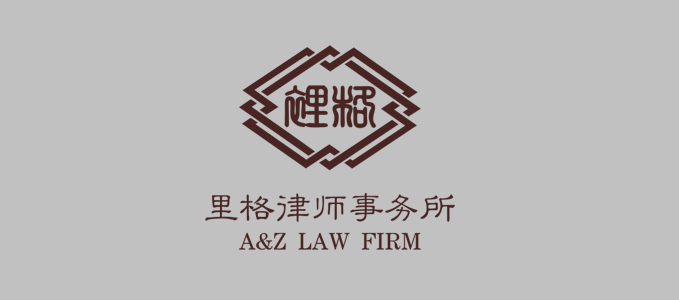China Is The Future
China Is The Future

China is the future
Andrew Zhang, Head of the European-American and Overseas Investment Desks
This statement is largely held by those who undertake, or plan to undertake ventures within, and projects that concern, China. However, with such a bold statement comes numerous questions, some sector-specific, and others of a more general nature. As such, the following FAQ is designed to answer some of these general and specific legal-related questions, and supplement the knowledge held by individuals and businesses in the undertaking of their Chinese endeavours.
Mr. Andrew Zhang, Partner and Head of the European-American and Overseas Investment Desks, will attempt to answer some of the most common questions recently asked by clients of A&Z.
1. Do I need a Chinese residence to do business in China?
You do not need a Chinese residence to do business in China. For example, your company can be located in the Netherlands and work with a Chinese distributor that helps in the distribution and sale of your products in China. You may also be involved in e-commerce businesses and want to sell your products through the “Direct Purchase Import model” (B2C) via international express courier. Under this model, the foreign company is established in Europe, or other regions, but outside of China. The main point is to figure out your business plan for the Chinese market. Once this is clear, then you should discuss with a legal professional to ascertain the most suitable model for your specific business.
2. What type of enterprises can I set up as a foreigner in China?
Currently, foreign companies commonly use these three types of structures; a Representative Office (Rep. Of.), a Wholly Foreign Owned Enterprise (WFOE), and a Joint-Venture (JV). Yet, parent companies must address and assess their business plan for the Chinese market in the short- and mid-term. According to the business scope of the company, one structure might be more suitable than another.
For instance, if the parent company wishes to establish a simple and fast structure such as a Representative Office, it should bear in mind the restrictions of this structure. The Rep. Of. can only engage in contacting, promoting activities, conducting market research activities, and other non-profit-making activities, in other words, it will not be able to sign contracts and be concerned with remuneration transactions.
The common advantages of a WFOE include, but are not limited to: independence and freedom to implement the international strategies of headquarters without having to consider the involvement of the Chinese partner; ability to formally carry out business rather than just function as a representative office; capability of issuing invoices to customers in RMB and receive revenues in RMB, and converting RMB profits to EUR for remittance to headquarters outside of China; protection of intellectual property, know-how and technology; full control of human resources; and greater efficiency in operations, management and future business development.
3. How can a foreign company tell if a prospective Chinese partner is a legitimate undertaking?
For any company doing business abroad, locating business partners is necessary in order to grow and expand. To identify the right partner is fundamental, but it is a difficult task. While it is possible to ask for recommendations from clients and industry players, it is also recommendable to conduct due diligence exercises. Allocating a budget for professional and sophisticated research on your business partner may seem unnecessary in your initial stages in China, but it can be a critical element to preventing risks in later stages.
4. Approximately how long does it take to set up a foreign office in China?
To set up a company in China is not an easy process. The difficulty of the establishment depends on factors such as the type of company (JV, WFOE, Rep. Of.), and the type of business (consulting, services, trading, manufacturing). Some types of businesses might not be encouraged by the Chinese government and, therefore, the support may be lower.
Let’s look at the case of a WFOE. As it stands currently, this is one of the most common structures for a foreign company. It might take between 3 and 6 months to set up. Timing depends on the efficiency of the parent company preparing all the documents, local professional advising, approval from different official institutions, specific requirements per industry, etc.
There are mainly three phases for establishment of a WFOE. First, the parent company and the professional consultant have to prepare documents. The smoothness of the application process also depends on how well the application documents are prepared. This requires drafting the documents with knowledge of Chinese legal requirements. This phase may take 1 to 2 months. The second phase is for “name-approval”, “filing of the establishment”, and “registration of the establishment” which depends on official institution verifications and acceptance. It may take between 1 and 2 months. The last phase comes after obtaining a business license. It will be necessary to go through different official institutions and present extra documents to finalize the entire process. This phase may also require 1 to 2 months. In this case, it is not required to apply for a CIQ registration or other Customs registration, resulting in a reduction in waiting time. It should be noted that if the foreign investor wants to invest in certain restricted industries, it must apply for pre-approval for such an investment from the relevant government authorities. The time of such pre-approval varies depending on the details of the authorities’ requirements.
5. Must the WFOE have Chinese employees?
No. Chinese law does not oblige businesses to have Chinese employees. However, if a foreign company intends to do business in China and is not familiar with the Chinese market or does not speak or write the language, it would be highly advisable to have a Chinese employee to take care of administrative and secretarial work at least.
6. In the case that the foreign company is not yet established in China, can it employ Chinese citizens in China?
Generally speaking, a foreign company could engage a Chinese citizen as a subcontractor to provide some consulting work for the foreign company.
According to Chinese labour law, a foreign company cannot conclude labour contracts with Chinese citizens if the place of work performance is in China. For example, suppose your parent company is in Germany, and wishes to hire a Chinese employee to start conducting business (representing the foreign company in China) before establishing a WFOE. In this case, the German company must obtain a business license in order to be able to employ a Chinese citizen in China. Note that if the foreign company establishes a Rep. Of., then it will be required to employ local individuals through external HR agencies.
7. Is there a general list of items or products prohibited from import into China through the e-commerce channel?
There is a list of products authorized for retail import via China’s Cross Border E-commerce. The lists can be found online (Chinese version). Foreign Chambers of Commerce and other trade institutions may provide these lists in other languages. As those translations may not be official and local regions may vary in some matters, it is highly advisable to obtain the original and authoritative local list.
http://gss.mof.gov.cn/zhengwuxinxi/zhengcefabu/201604/P020160407628544745898.pdf
http://gss.mof.gov.cn/zhengwuxinxi/zhengcefabu/201604/P020160415822493955077.pdf
8. How is trademark filing undertaken?
When a foreign company intends to enter into the Chinese market for the first time, it is recommended that one pays attention to trademark application and protection. Where the foreign company has already registered trademarks in Europe, the United States, or other countries, these trademarks are not protected in China automatically. The ‘Exclusive Right to Use’ in Mainland China can only be obtained via application for registration to the China Trade Mark Office (hereinafter referred to as CTMO).
Once the trade mark application is approved and the company obtains such exclusive right, it will be less burdensome for the company to regulate the use of its brand by the distributor via licensing. Moreover, while verifying that the company does not wrongly infringe other’s trade mark rights, it can also undertake actions against other companies using its trade mark for the same or similar goods.
Finally, it is advisable to consider Chinese names and resembling marks along with existing marks for defensive purposes. This is because counterfeits may already exist or are highly likely to appear in the Chinese market, as the outstanding reputations of foreign brands and product(s) in Europe and the United States are spreading to – and in many cases are already understood within - China. The counterfeit product(s) are not permitted to use the exact same trade mark, but are able to use extremely similar ones.
9. Can I sign a contract with a Chinese company doing business within Chinese territory in English?
Yes, you can. For this case, it is even more advisable to pay a higher degree of attention to the arbitration clause. Note that under the PRC Arbitration Law, an arbitration agreement has to be in writing. It should contain three items for its validity: a. an expression of intention to apply for arbitration; b. matters that should be referred to arbitration; and c. a designated arbitration commission. In addition, other issues should also be considered such as language, governing law, and location.
What could happen in this case is that the Chinese company does not agree with signing a contract solely in the English language, particularly if this contract will be approved by the Chinese government, in which the Chinese government will require the provision of a Chinese version or a Chinese translation of the contract. If this is the case, then your company could have a bilingual contract with an indication of the prevailing language in the event of a dispute.
10. Can we choose arbitration in our country instead of China in the contract?
If the country is a member state of the New York Convention (1958), yes you can. However, you must be careful on this matter. First of all, unless your company is a very well-known multinational, it may be the case that the Chinese side does not agree, and therefore the choice can be easily rejected. Secondly, it is not advisable to choose a country that is not a common one such as Hong Kong or Singapore. The reason is to avoid possible risks when enforcing the award.
We may have exhausted Mr. Zhang with the overwhelming number of answers, but feel free to attach any further questions to the bottom of this article, or alternatively, send us an email at mpaulo@a-zlf.com.cn.



